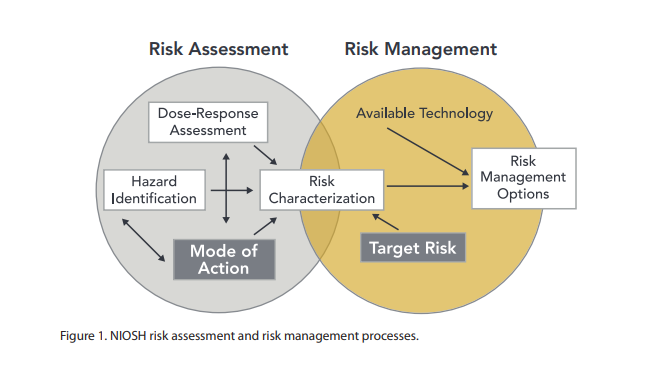|
Holger Rootzén
Holger Rootzén (born 25 March 1945) is a Swedish mathematical statistician. He is Professor in Mathematical Statistics at the Department of Mathematical Sciences, Chalmers University of Technology since 1993. Education and career Rootzén obtained his Ph.D. in 1974 with the thesis ''On sequences of random variables which are mixing in the sense of Renyi''. He has earlier been professor at Lund University and lecturer at University of Copenhagen. Rootzén is member of the Royal Swedish Academy of Sciences. He also serves as adjunct member on the Price Committee for the Alfred Nobel Memorial Prize in Economic Sciences. He has been editor-in-chief for the scientific journals ''Extremes'', '' Bernoulli'', and '' Scandinavian Journal of Statistics'' and has received many grants, including a 2013 grant of 50 million SEK from the Knut and Alice Wallenberg foundation. Research Rootzén's research areas include probabilistic limit theory, statistics of extremes, and use of mathema ... [...More Info...] [...Related Items...] OR: [Wikipedia] [Google] [Baidu] |
Lund University
Lund University () is a Public university, public research university in Sweden and one of Northern Europe's oldest universities. The university is located in the city of Lund in the Swedish province of Scania. The university was officially founded in 1666 on the location of the old ''studium generale'' next to Lund Cathedral. Lund University has nine Faculty (division), faculties, with additional campuses in the cities of Malmö and Helsingborg, with around 47,000 students in 241 different programmes and 1,450 freestanding courses. The university has 560 partner universities in approximately 70 countries. It belongs to the League of European Research Universities as well as the global Universitas 21 network. Among those associated with the university are five Nobel Prize winners, a Fields Medal winner, prime ministers and business leaders. Two major facilities for materials research have been recent strategic priorities in Lund: MAX IV, a synchrotron radiation laboratory – in ... [...More Info...] [...Related Items...] OR: [Wikipedia] [Google] [Baidu] |
Risk Assessment
Risk assessment is a process for identifying hazards, potential (future) events which may negatively impact on individuals, assets, and/or the environment because of those hazards, their likelihood and consequences, and actions which can mitigate these effects. The output from such a process may also be called a risk assessment. Hazard analysis forms the first stage of a risk assessment process. Judgments "on the tolerability of the risk on the basis of a risk analysis" (i.e. risk evaluation) also form part of the process. The results of a risk assessment process may be expressed in a quantitative or qualitative fashion. Risk assessment forms a key part of a broader risk management strategy to help reduce any potential risk-related consequences. Categories Individual risk assessment Risk assessments can be undertaken in individual cases, including in patient and physician interactions. In the narrow sense chemical risk assessment is the assessment of a health risk in response ... [...More Info...] [...Related Items...] OR: [Wikipedia] [Google] [Baidu] |
Swedish Statisticians
Swedish or ' may refer to: Anything from or related to Sweden, a country in Northern Europe. Or, specifically: * Swedish language, a North Germanic language spoken primarily in Sweden and Finland ** Swedish alphabet, the official alphabet used by the Swedish language * Swedish people or Swedes, persons with a Swedish ancestral or ethnic identity ** A national or citizen of Sweden, see demographics of Sweden ** Culture of Sweden * Swedish cuisine See also * * Swedish Church (other) * Swedish Institute (other) * Swedish invasion (other) * Swedish Open (other) Swedish Open is a tennis tournament. Swedish Open may also refer to: * Swedish Open (badminton) * Swedish Open (table tennis) * Swedish Open (squash) * Swedish Open (darts) {{disambiguation ... {{disambig Language and nationality disambiguation pages ... [...More Info...] [...Related Items...] OR: [Wikipedia] [Google] [Baidu] |
Members Of The Royal Swedish Academy Of Sciences
Member may refer to: * Military jury, referred to as "Members" in military jargon * Element (mathematics), an object that belongs to a mathematical set * In object-oriented programming, a member of a class ** Field (computer science), entries in a database ** Member variable, a variable that is associated with a specific object * Limb (anatomy), an appendage of the human or animal body ** Euphemism for penis * Structural component of a truss, connected by nodes * User (computing), a person making use of a computing service, especially on the Internet * Member (geology), a component of a geological formation * Member of parliament * The Members, a British punk rock band * Meronymy, a semantic relationship in linguistics * Church membership, belonging to a local Christian congregation, a Christian denomination and the universal Church * Member, a participant in a Club (organization), club or learned society See also * * {{disambiguation ... [...More Info...] [...Related Items...] OR: [Wikipedia] [Google] [Baidu] |
Academic Staff Of The Chalmers University Of Technology
An academy (Attic Greek: Ἀκαδήμεια; Koine Greek Ἀκαδημία) is an institution of tertiary education. The name traces back to Plato's school of philosophy, founded approximately 386 BC at Akademia, a sanctuary of Athena, the goddess of wisdom and skill, north of Athens, Greece. The Royal Spanish Academy defines academy as scientific, literary or artistic society established with public authority and as a teaching establishment, public or private, of a professional, artistic, technical or simply practical nature. Etymology The word comes from the ''Academy'' in ancient Greece, which derives from the Athenian hero, ''Akademos''. Outside the city walls of Athens, the gymnasium was made famous by Plato as a center of learning. The sacred space, dedicated to the goddess of wisdom, Athena, had formerly been an olive grove, hence the expression "the groves of Academe". In these gardens, the philosopher Plato conversed with followers. Plato developed his sessions ... [...More Info...] [...Related Items...] OR: [Wikipedia] [Google] [Baidu] |


